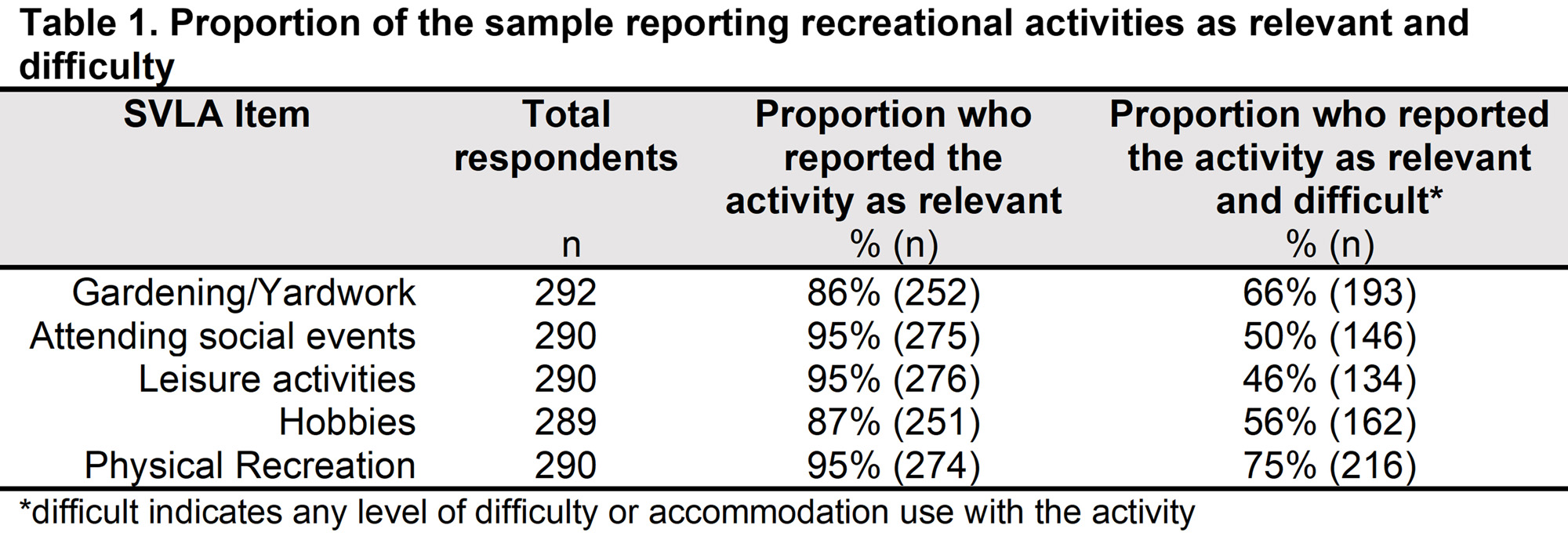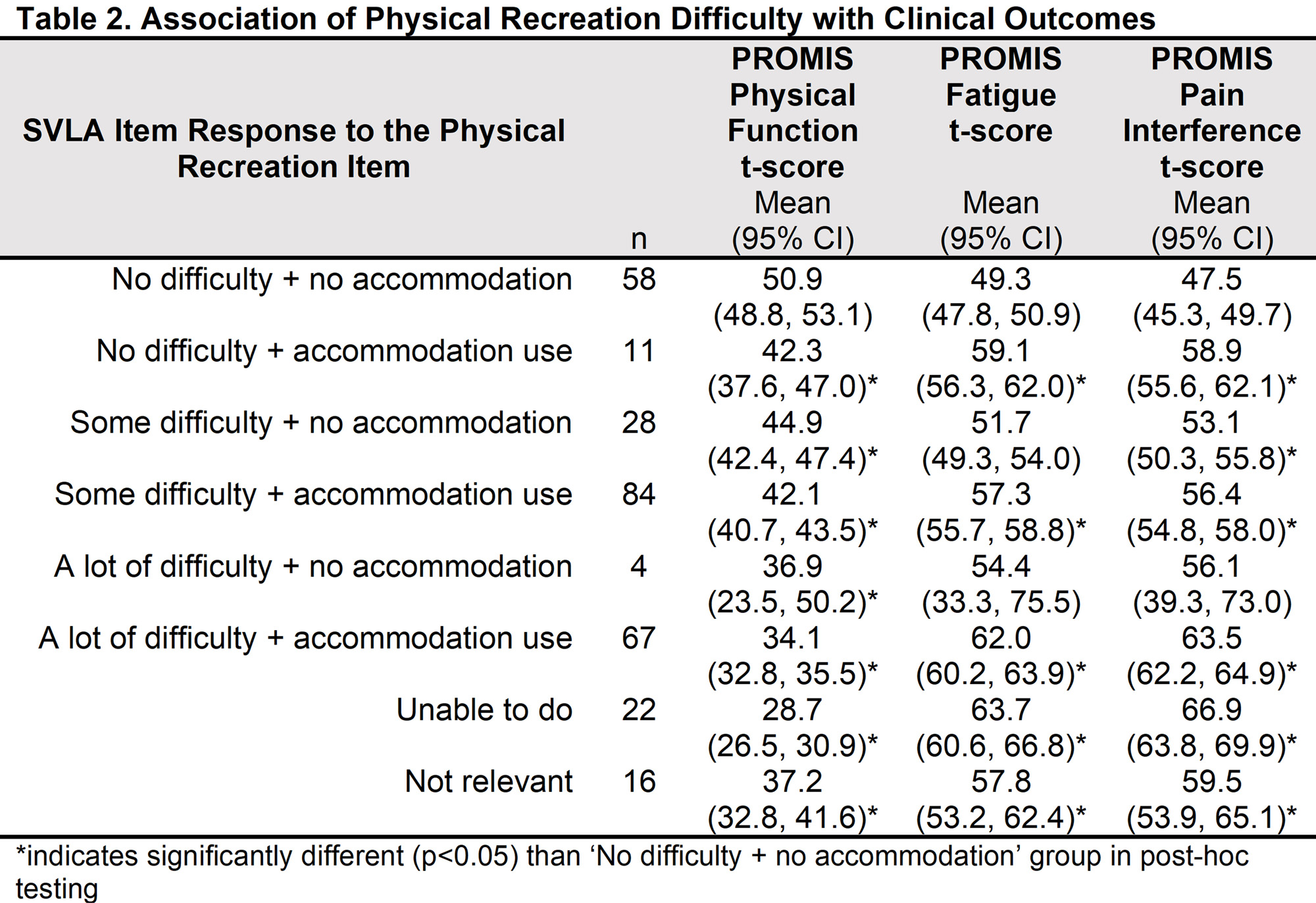Session Information
Date: Sunday, November 12, 2023
Title: (0145–0154) Epidemiology & Public Health – Interprofessional Poster
Session Type: Poster Session A
Session Time: 9:00AM-11:00AM
Background/Purpose: Rheumatoid arthritis (RA) can limit one’s ability to participate in recreational activities. Participation in recreational activities enhances quality of life, yet limited literature addresses recreational activity. The Short-Valued Life Activities (SVLA) questionnaire specifically assesses difficulty with five categories of recreational activities including if accommodations (e.g., extra time, assistance) are needed to participate. Respondents can also indicate if an item is not relevant to their lives, which is a feature absent from many common patient-reported outcomes. The purpose of the study was to (1) describe the relevance and difficulty with recreational activities among adults with RA and (2) examine the association of difficulty with recreational activity with physical function (PF), fatigue, and pain.
Methods: In this cross-sectional study, participants with RA (n=290) completed an online survey regarding their current clinical outcomes and demographic information. Participants were eligible if they were 18 years old or older and received care between 2020-2021 from UNC Rheumatology for RA. We assessed participation in recreational activities using items 5, 7, 10, 11 and 12 from the SVLA (i.e., gardening/yardwork, attending social events, leisure activities, hobbies, and physical recreation). Participants first identified if each item activity was relevant to them. If relevant, they selected their level of difficulty to perform the activity (i.e., none, some, a lot or unable to participate) and if they used an accommodation or not (e.g., extra time, assistance, tools). PROMIS short forms were used to assess physical function, fatigue, and pain interference. For purpose one, we calculated the proportion of the sample who identified each item as relevant, and as relevant and difficult (defined as at least some difficulty or accommodation use). For purpose two, we identified the item that was most frequently relevant and difficult and tested the association of this item with physical function, fatigue, and pain using a general linear model. Significance was set at alpha < 0.05. If the association was significant, Tukey’s tests were used to evaluate pairwise differences between groups.
Results: The recreational activities were relevant for most of the sample (86%-95%, Table 1). Physical recreation was the most frequently relevant and difficult activity (75% of the sample). Greater difficulty with physical recreation was associated with worse physical function, fatigue, and pain (F7,282 = 20.1 – 41.6, all p < 0.001). Participants who reported no difficulty and no accommodation use with physical recreation had better physical function, fatigue, and pain compared to nearly all other response categories (p< 0.05, Table 2).
Conclusion: Recreational activities were highly relevant and difficult for most adults with RA. Even small increases in difficulty, such as accommodation use, were associated with worse clinical outcomes, suggesting accommodation use could be an early indicator of declining functional abilities. Further research is needed to understand how to best support participation in recreational activity.
To cite this abstract in AMA style:
Novroski S, Lane C, Torrey J, Thoma L. Recreational Activities in Adults with Rheumatoid Arthritis: Relevance, Difficulty, and Associations with Clinical Outcomes [abstract]. Arthritis Rheumatol. 2023; 75 (suppl 9). https://acrabstracts.org/abstract/recreational-activities-in-adults-with-rheumatoid-arthritis-relevance-difficulty-and-associations-with-clinical-outcomes/. Accessed .« Back to ACR Convergence 2023
ACR Meeting Abstracts - https://acrabstracts.org/abstract/recreational-activities-in-adults-with-rheumatoid-arthritis-relevance-difficulty-and-associations-with-clinical-outcomes/


